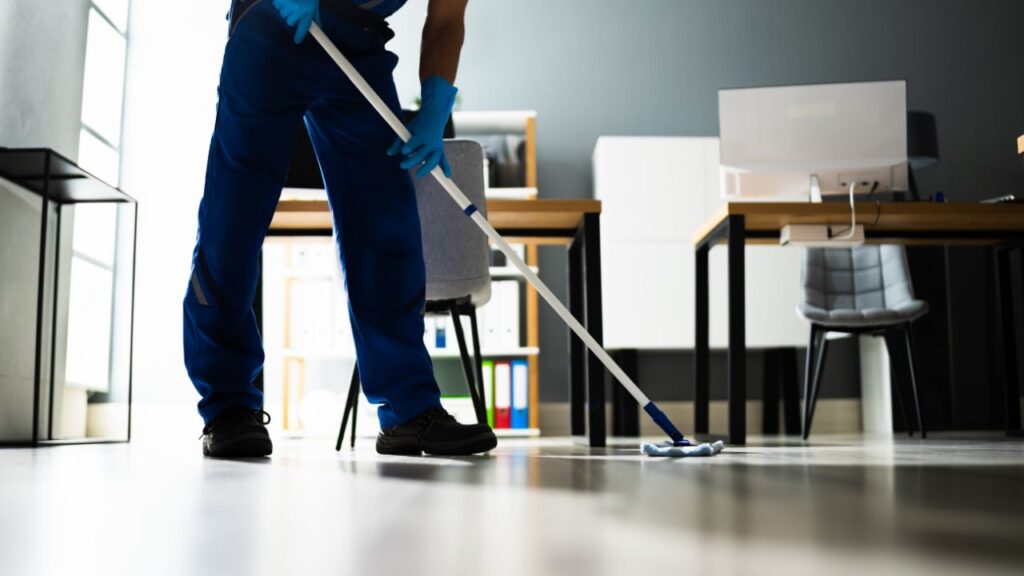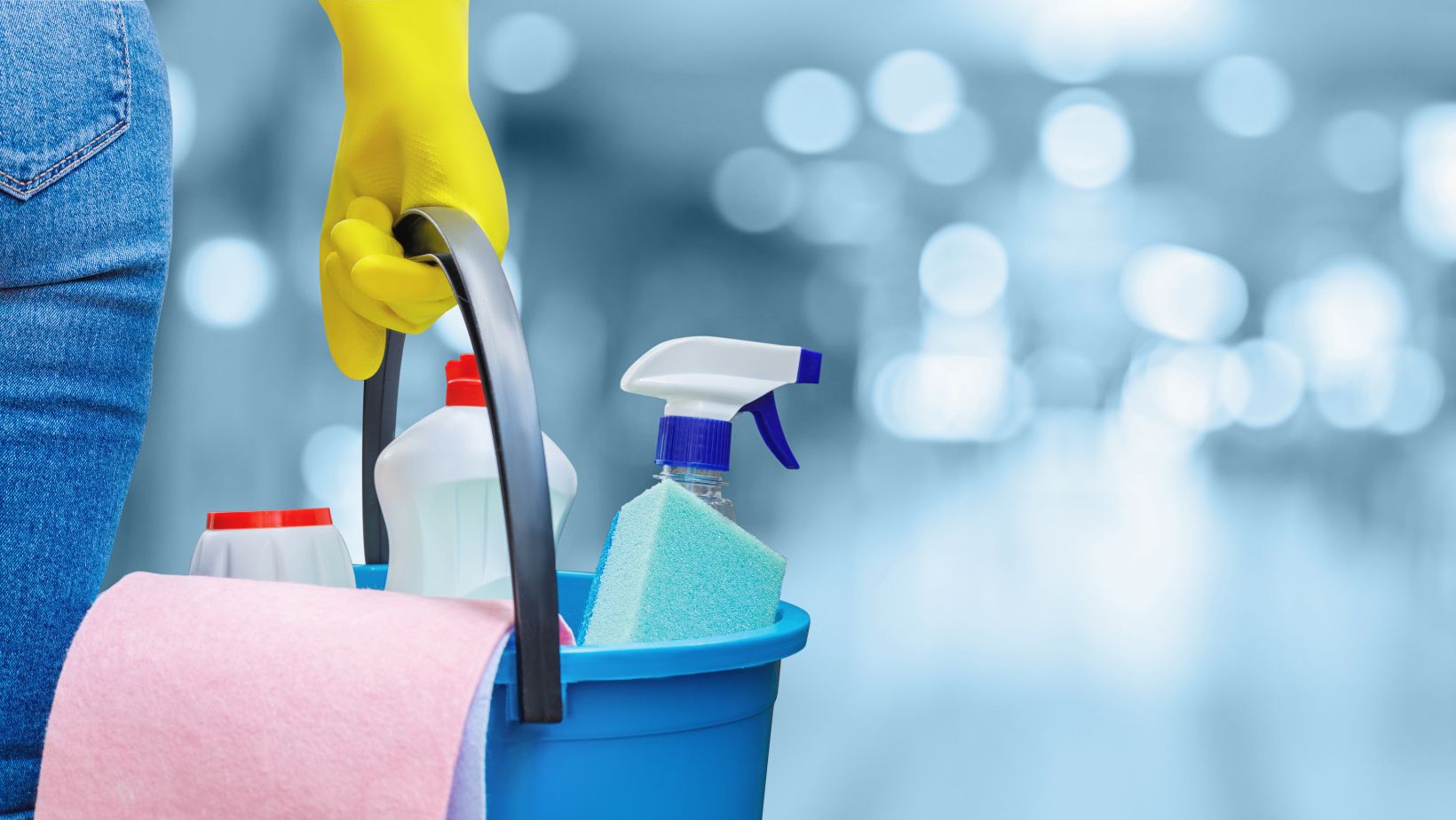
Most of us are well aware of how important our healthcare facilities are. From private practice offices to hospitals, healthcare facilities offer vital services that enable us to stay healthy, recover from maladies, treat injuries, and avoid disease. Within healthcare settings, there are a number of highly trained professionals whom we rely on each day to keep us safe and help us seek treatment. Among those are doctors, nurses, technicians, and—importantly—janitorial staff.
When it comes to healthcare settings, few considerations in importance outweigh that of cleanliness. That’s why we’re exploring the invaluable role that janitorial services play and how they contribute to effective, safe healthcare facilities. Janitorial services help hospitals work to ensure that they can better mitigate the spread of dangerous pathogens and offer a sanitary environment for patients to recover and seek treatment in and for healthcare professionals to operate in.
It’s often thanks to janitorial professionals’ training and high expertise that they can offer these essential services to healthcare facilities such as hospitals. Yet, their importance can be sometimes overlooked.
To better understand the essential contributions that janitorial professionals make to healthcare settings, we’ll explore some of the tasks that janitorial professionals carry out—such as disinfecting high-touch surfaces, waste management, and the cleaning of patient rooms, operating theaters, and public areas—as well as some important protocols they might follow. We’ll dive into some of the stringent standards and regulations that janitorial staff adhere to, such as utilizing medical-grade cleaning products and adhering to strict infection-control protocols.
Essential Tasks of Janitorial Staff in Hospitals
Janitorial services are often an essential consideration for healthcare facilities. It’s crucial that hospitals are able to enlist the help of professionals who can help them create a safe environment to carry out healthcare services in. So what are some of the essential tasks that janitorial staff carry out in hospitals? Their duties often include a range of essential tasks, including disinfecting certain surfaces, effectively managing waste, and cleaning essential areas in healthcare facilities, such as patient rooms, operating rooms or operating theaters, and publicly-used areas—such as hallways, offices, seating areas, and waiting rooms. To better understand these essential tasks, let’s take a look at some of the most important ones:
- Disinfecting high-touch surfaces: High-touch surfaces, as their name implies, are surfaces that are likely to experience a high volume of touching. Some examples include desks, writing utensils, door handles, tables, elevator buttons, and clipboards.
Since these surfaces can experience a high volume of contact from various individuals, they also represent a potential risk of spreading dangerous pathogens—especially in healthcare settings where those very pathogens may be combated regularly.
For janitorial staff in healthcare settings such as hospitals, disinfecting these surfaces is often an essential task and duty.
- Managing Waste: Waste management is typically an essential part of operations in a healthcare facility. In hospitals, there are many important considerations to take—not only might there be normal everyday waste such as that found in a typical wastebasket as well as recycling, but hospitals also must often contend with biohazardous waste, which must be separated from normal waste and processed properly. Janitorial staff who deal with biohazardous waste must ensure that they’re adequately trained and comply with standards set by both OSHA, or the Occupational Safety Hazard Administration, and, in the state of Indiana, IDEM or the Indiana Department of Environmental Management.
- Cleaning Rooms: Hospitals can range a lot in size—but regardless of their size, they must contend with challenges associated with maintaining sanitary spaces. Some of the most important areas in hospitals might include operating rooms or operating theaters, patient rooms, public areas such as patient waiting areas or hallways, and offices. Many of these spaces must be kept in highly sanitary conditions. Hospital janitorial staff ensure that these spaces are kept clean and sanitary so that patients and healthcare professionals can receive treatment or operate in a safe environment.
Standards, Regulations, and Protocols
Janitorial staff operating in healthcare facilities such as hospitals often must ensure that they follow industry best practices, adhere to legal requirements and regulatory standards, and follow established operating procedures as they carry out their essential duties. So what are some of the standards and regulations that janitorial staff might adhere to? Let’s explore:
- Using Medical-Grade Cleaning Products: Importantly, janitorial professionals working in hospitals must utilize the correct cleaning products—those that are designed for use in healthcare settings in compliance with established regulatory standards. In addition to guidelines from the Centers for Disease Control, janitorial staff also must consider the standards that OSHA, and the Environmental Protection Agency, or the EPA set for cleaning products to be used in hospitals. The importance of using the right cleaning products can be immense and may be a crucial consideration for janitorial professionals operating in hospitals.
- Adhering to Strict Infection-Control Protocols: Hospitals have a high need for cleanliness. As facilities that can contend with dangerous pathogens on a regular basis, it’s important that janitorial staff and other workers operating in the hospital follow strict infection-control protocols. These are protocols that aim to mitigate the risk of infection and the spread of disease through certain practices. These might include wearing personal protective equipment, or PPE, regular handwashing, robust training requirements, systematically and regularly disinfecting certain surfaces, and properly managing biohazardous waste.
The Bottom Line
The truth is, the importance of janitorial professionals in our healthcare facilities, such as hospitals, is difficult to overstate and should not be overlooked. Thanks to the tireless work of these highly-trained and extremely capable professionals, patients and healthcare professionals can seek treatment, recover, and operate in a safe and sanitary environment.
The risks associated with deficiencies in cleanliness in hospitals can be severe and devastating. As such, the importance of the professionals who ensure that our hospitals stay clean is clear. Nightly janitorial services for hospitals can be crucial. It’s thanks to these professionals who carry out crucial tasks—cleaning essential spaces in hospitals, ensuring that high-traffic surfaces are disinfected, managing waste, adhering to strict infection-control procedures, and much more—that many hospitals are able to offer their patients effective healthcare services.
Whether you’re interested in learning more or seeking nightly janitorial services, don’t hesitate to reach out and get in touch! At American Facility Care, we have the experience and the know-how to help you meet hospital nightly janitorial services needs! Get in touch today to schedule a free consultation here!

Tom Moore has been a part of the commercial cleaning and facility management industry since 2005. He co-founded American Facility Care in 2014 with the idea of bringing safety and aesthetics to buildings across central Indiana. He has an APIC certification in Infection Control and Prevention, and enjoys passing that knowledge on to his team using their exclusive Hygienic Training Method of cleaning. Tom co-hosts The Cleaning Indy Podcast, and would love a chance to connect with you and perhaps have you as a guest of the show.





